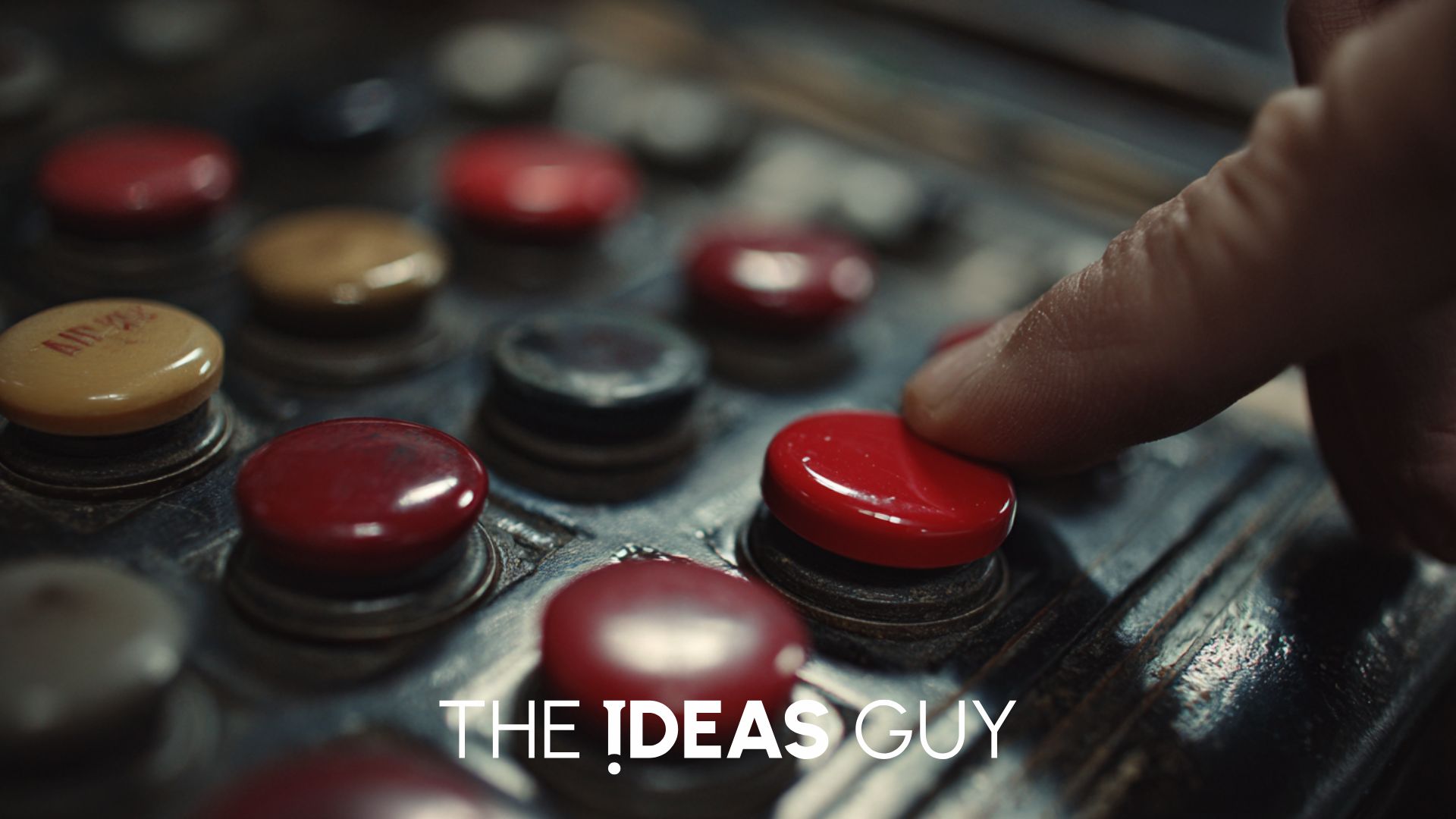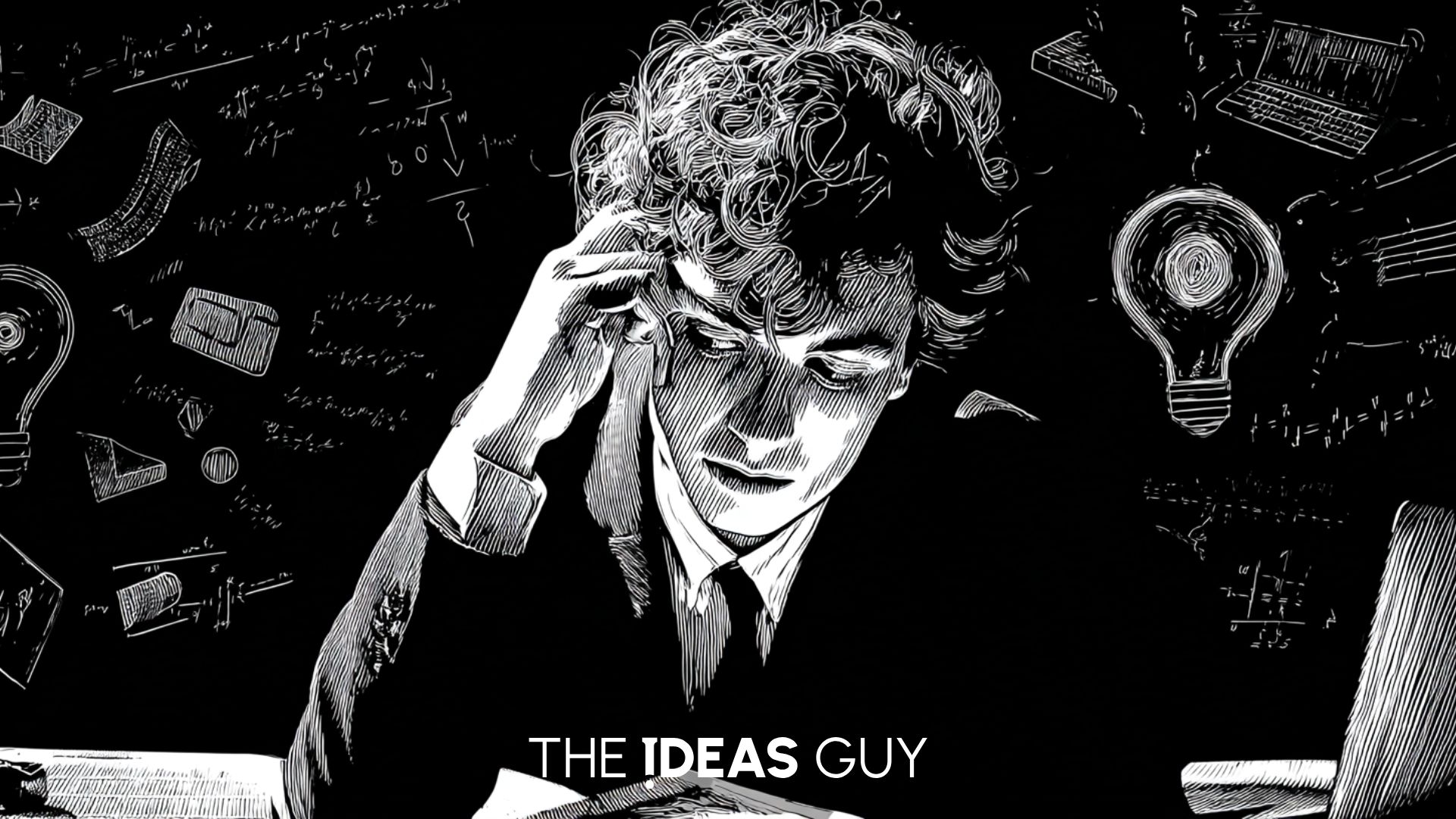My childhood bedroom probably should have come with a hazard warning. The unsuspecting visitor (victim for Blink 182 fans 😉) risked being interrogated about the eating habits of velociraptors, the possibility of befriending the monster under the bed, and whether my pillow could float if I wished hard enough. My overworked parents did their best, but some questions defied even their grown-up wisdom. I was a walking encyclopaedia of the absurd, and my room was ground zero for a thousand flights of fancy!
Looking back, I understand how external forces, like the school system, could shape my answers, sometimes even stifling those very questions. It brings to mind Mohandas Gandhi's powerful words: "Your beliefs become your thoughts, your thoughts become your words, your words become your actions, your actions become your habits, your habits become your values, your values become your destiny."* This quote encapsulates the profound influence our beliefs have on shaping the course of our lives, especially our creative journeys. As a former philosophy teacher and current deep thinker, I am fascinated by the things that people are willing to believe.
As a side note, this funny little article in Readers' Digest goes through some strange things believed as kids. My personal favourite: I believed that if the ice cream truck (van) was playing music, it meant that it was out of ice cream. (This is one I passed onto my girls - it's saved me a fortune until they realised!)
*Mohandas was Gandhi's actual name, not Mahatma, for those who didn't know. Mahatma was a title given to him which meant 'great soul'.
So, let's dive into this process that Gandhi espouses:
Beliefs: The Foundation of Imagination
Our beliefs act as the foundation for our thoughts, shaping how we perceive the world around us. A child raised in an environment that celebrates creativity thrives on exploration and experimentation. They don't shy away from 'wrong' answers because they believe the journey of discovery is more valuable than the final destination. Conversely, a child constantly told to stay within the lines or that mistakes are failures might develop a fear of experimentation, stifling their creative spark.
Thoughts: From Curiosity to Classroom Constraints
Then this vibrant, inquisitive child enters the school system. At first, the structured learning can be stimulating, introducing new concepts and ways of thinking. However, as the focus shifts towards standardised tests and rote memorisation (enough of that last week!), the space for free-flowing curiosity can shrink. The teacher who encourages a child to 'think outside the box' might be an anomaly. The thrill of asking "why" can be replaced by the pressure to find the "right" answer.
Gandhi's quote reminds us that these seemingly small shifts in our thoughts ("Is this question relevant?") and words ("Maybe I shouldn't ask this") eventually translate into actions and habits. Choosing to stay silent, to stick to the prescribed method, becomes ingrained behaviour. This isn't necessarily a conscious choice, but rather a subconscious adaptation to the system.
Words that Empower, Words that Limit
The language we use, both internally and externally, plays a crucial role. The silent self-pep talk ("I can draw a brilliant self-portrait!") empowers us to experiment and embrace our creative impulses. However, when we tell ourselves, "I'm not good at art," or "I'll never be as creative as X," these repetitive words become self-fulfilling prophecies. We begin to avoid tasks that might challenge us or force us to step outside our comfort zone.
Habits that Nurture, Habits that Dim
Over time, our actions become ingrained habits. The child who consistently seeks creative outlets, who doodles in notebooks and builds fantastical structures out of LEGO, develops a habit of creative exploration. These habits become second nature, shaping our identity and influencing our values. On the other hand, if the creative spark is consistently discouraged through negative reinforcement (e.g., "Stop scribbling!") or lack of positive reinforcement for creative pursuits, the tendency to express creativity can become dormant.
We don't need to look very far to find modern thinking around habits. Whether it's Charles Duhigg, James Clear or Zig Ziglar, the literature seems clear: you are what you repeatedly do. In fact, they probably got that from another of the brilliant thinkers from Ancient Greece. 👇

Values: The Compass of Our Creative Journey
Gandhi suggests that our habits ultimately shape our values. The child who habitually throws themselves into creative projects values imagination and innovation. Conversely, the child who consistently prioritises following the rules and achieving good grades might develop values centred on conformity and achievement. These values then become the guiding stars of our journey, propelling us towards certain paths while steering us away from others.
I hear it said that if you want to know what you value, look at your calendar (your actual activities not just the things you put on your Google Cal!) and your bank balance. A wise fella once said, "Where your treasure is, there your heart will be also."
For what it's worth, I spent some time thinking about my values after reading Daniel Priestley's great book, Key Person of Influence. I think mine are summed up in:
- Family
- Fun
- Faith
- Friendship that isn't superficial
- Authenticity
- Work that has purpose
- Continuous learning
- Curiosity & subsequent adaptability
(What a shame that the last few didn't begin with F!) I know this is a work in progress and my value will potentially shift over time but this is where we are at in early 2024.
Shaping Our Creative Destiny
The beauty of Gandhi's quote lies in its inherent hope. While our beliefs and experiences shape us, they are not an unalterable blueprint. We have the power to be aware of the beliefs shaping our thoughts, to challenge limiting words we use internally, and to consciously cultivate habits that nurture our creative spirit. We have a moral responsibility to question what we have believed to see whether it serves us now like it had before. And perhaps more importantly, whether it will serve us in the future.
To fulfil our destiny (whatever that may be and wherever we BELIEVE that comes from), the key is to work backwards:
DESTINY - What values will take me where I want to be or should be?
VALUES - What does what I repeatedly do say about what matters?
HABITS - What things do I do without thinking?
ACTIONS - What do I talk about and then do?
WORDS - How do I verbalise what I am thinking about?
THOUGHTS - What do I think confidently about?
BELIEFS - What do I accept as true regardless of evidence?
What are you confident about even if the evidence doesn't support it fully? Are these sensible beliefs or irrational? Does it matter?
Nurturing the Seeds of Wonder
To cultivate a more creative environment for ourselves and future generations that is predicated on this flow, it is likely a good ideas to:
- Question Everything: Encourage open-ended questions, fostering a love of exploration and discovery. Let's create environments where "why" and "how" aren't seen as disruptions but as springboards for deeper learning and meaning (in schools and beyond)
- Celebrate Mistakes: Reframe mistakes not as failures but as stepping stones. We must see the creative process as a journey with inevitable detours and unexpected discoveries.
- Embrace the Messy: Ditch the rigid adherence to "colouring inside the lines." Allow for experimentation, mixing of mediums, and a playful approach to problem-solving. What's the worst that could happen?
- Connect Unlikely Dots: Encourage cross-disciplinary learning. The child who loves drawing dinosaurs should be nudged to research their anatomy or build a model of their environment. The coworker who is a social butterfly should perhaps head up the team-building day. Creativity thrives when seemingly unrelated areas collide.
- Defend the Dreamers: It's the responsibility of parents teachers, leaders — anyone shaping young minds — to protect children's sense of wonder. That means resisting systems that value conformity over originality and celebrating the misfits who see the world a little differently.

The Potential for Change
Shifting our perspective on creativity isn't just about nurturing happier individuals. The world desperately needs the innovative thinkers, the problem-solvers who look beyond the obvious. We lament the lack of revolutionary ideas while simultaneously dismissing the very minds that could unlock them.
Gandhi's quote offers both a warning and a challenge. If we allow the beliefs, systems, and habits of our current world to continue unchallenged, we risk stifling the potential innovators and change-makers of tomorrow. However, by consciously cultivating a mindset that prizes curiosity, experimentation, and resilience, we lay the groundwork for a future marked by extraordinary possibilities.
From Personal Passion to Collective Possibility
Returning to my own experience, I'm often struck by a sense of what might have been if my creativity had been nurtured differently. Would I be a different kind of writer, more innovative in my thinking? Would I have got where I am sooner? Might I have avoided some of the hurt and heartache if, for instance, my ADHD had been noticed before I was 39? That path is unknowable. But here's what I do know: there is untold creativity and genius trapped within societal expectations. Unlocking it isn't merely about individual fulfilment, but about the very future of the world we co-create.
Ultimately, by examining Gandhi's quote through the lens of creativity, we recognise a profound truth. Our beliefs, seemingly small and personal, have the power to ignite or extinguish the sparks of brilliance that could reshape our world. I for one will choose to be one who fans those flames both in myself and others, to create a world where the questions we ask are just as important as the answers we find. Imagine the extraordinary destiny we could create if we truly believed that.
Further Reading
Discover more interesting articles here.
.png)



